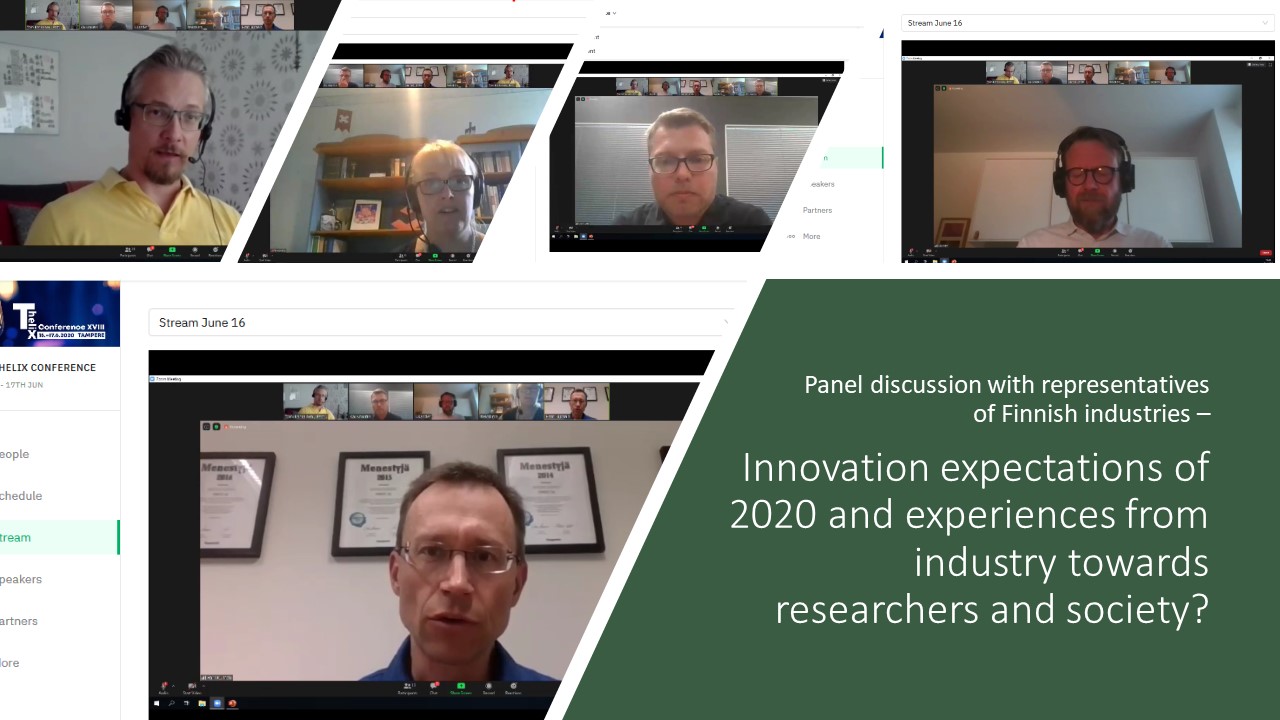The panel discussion began with the question raised by Mr. Kulmala, “What’s the difficulties for industry and researchers to communicate in the same language?” . Different needs regarding time for research are recognized as a major reason by all panelists that affect academics and companies having different expectations in communication. In related to the time issue, Mr. Kankainen further pointed out that we should be aware of the different nature of basic research and applied research. For instance, in computer sciences, the applied research that we are conducting now actually benefits from the research outcome of the fundamental basic research more than one hundred years ago. Based on this consideration, Mr. Kankainen and Mr. Lukander both called for more patience and flexibility support from Finnish companies to academics in university-industry communication and cooperation. Mr. Knuutila and Mrs. Kallio also recognized the size of companies is also an influential factor in the communication between academics and industries.
Led by Mr. Kulmala, panelists continued to discuss the impacts of the government in cooperation between academics and companies. Panelists all mentioned funding support from the government plays a key role here. Especially for global companies, government’s regulative and financial support in Finland and policy and funding opportunities from the EU both affect the R&D in companies in Finland. Panelists observed there would be new funding opportunities at European level for technology companies in Finland in the post Covid-19 world; however, we should also be aware that decision making at the EU level could be much slower than that inside Finland.
The discussion ended with panelists sharing their insights about cooperation between academics and industries in the future. Panelists shared a similar vision for university-industry cooperation to advanced scientific research for human beings jointly. They also recognized several challenges, such as a lack of mutual trust between academics and companies, a lack of continuity, insufficient flexibility, and a lack of tolerant environment support. Companies at different scales may have different challenges.Fundamentally, “the challenges is how to bring academics and companies together to describe the future, and find a common future. In this process, we should maintain enough flexibility. We know companies want to have returns very soon, and academics need more time for basic research. We need to balance the needs for the near and far future.” said Mr. Lukander. Agreeing on this, Mr. Kankainen added, “we should understand academics are different from consultants. Meanwhile, academics should have their ears opened”.
Text and photos: Gaoming Zheng

